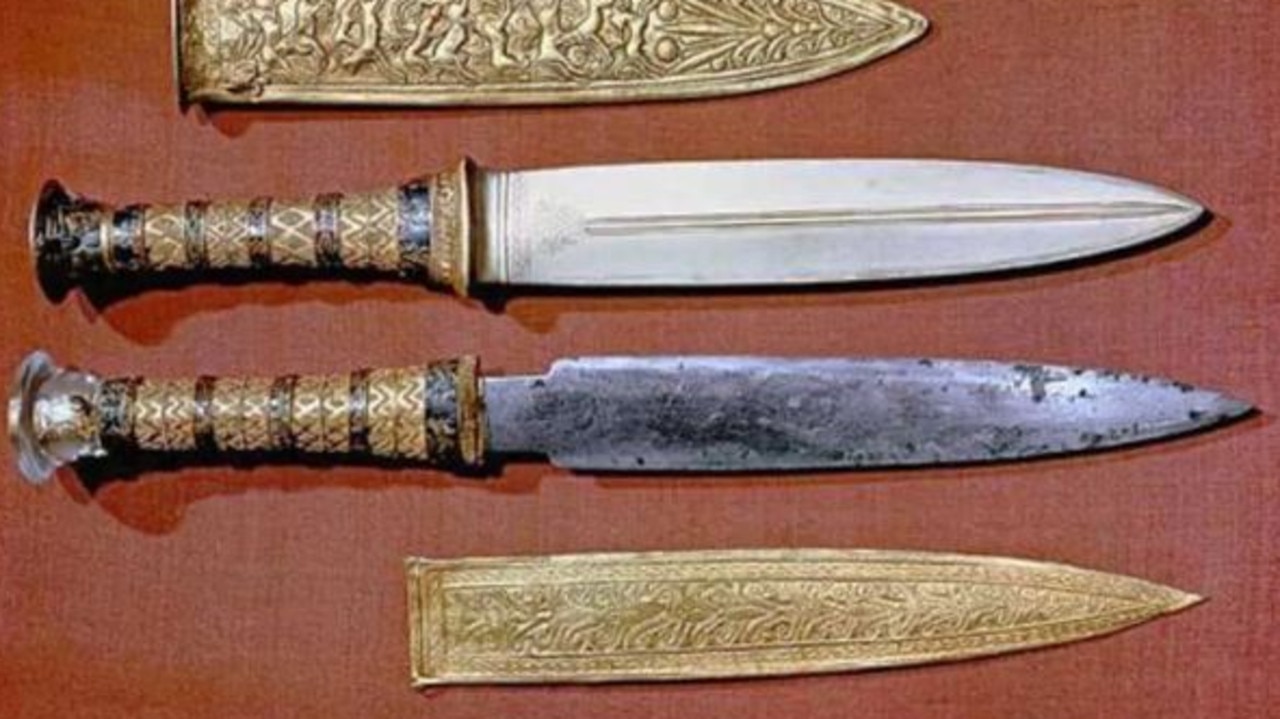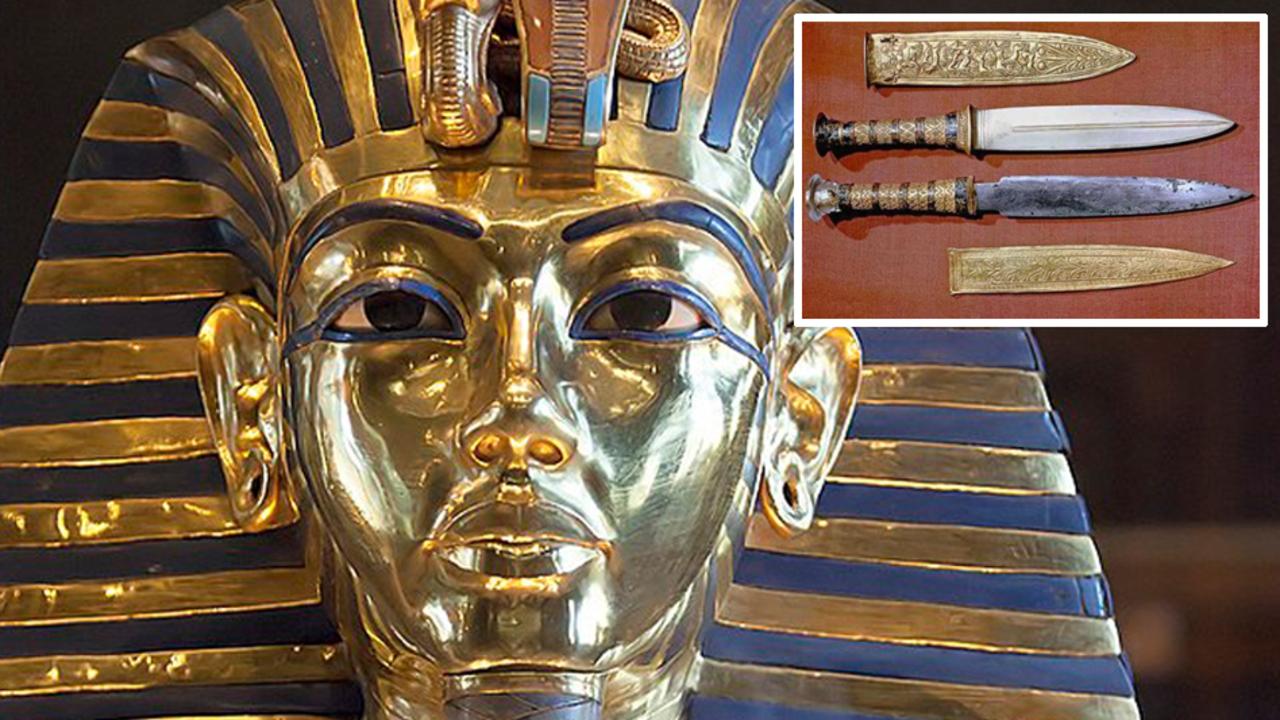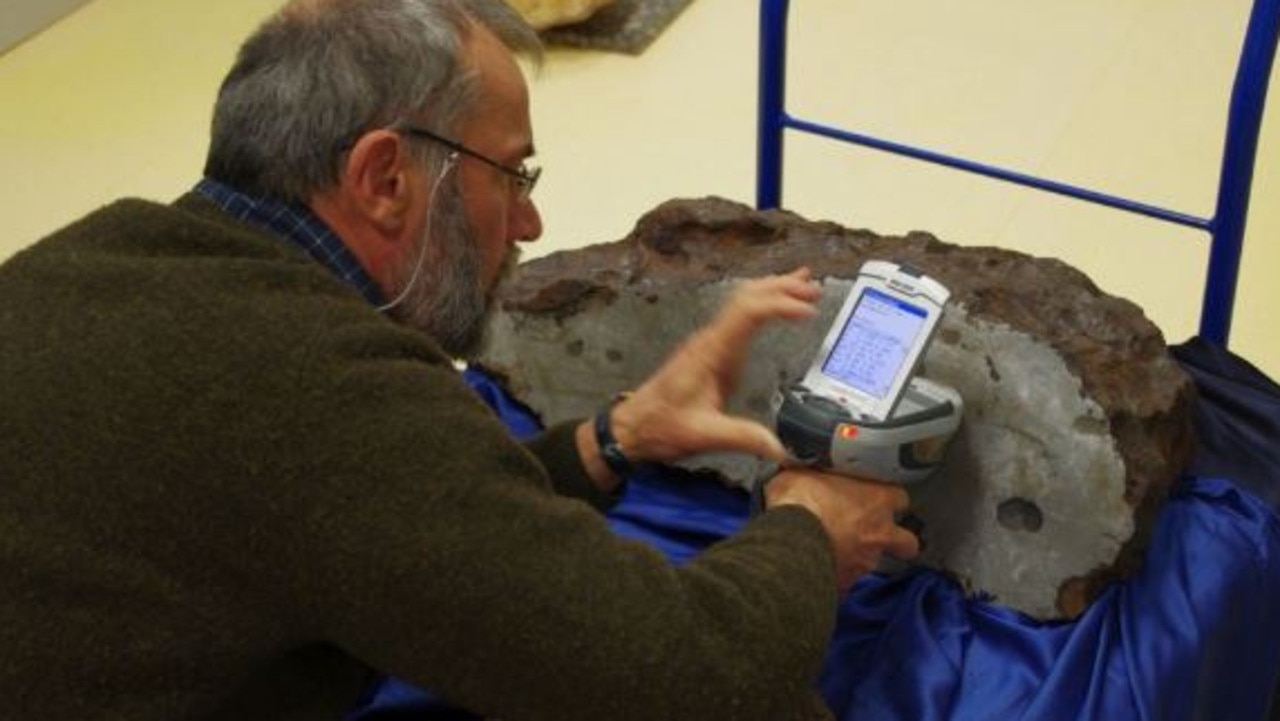Mystery of Tutankhamun’s meteorite ‘space dagger’ finally solved
The mystery surrounding ancient Egyptian pharaoh Tutankhamun’s resplendent dagger has finally been solved.
Archaeologists have finally solved a mystery surrounding a dagger that belonged to King Tutankhamun 3400 years ago.
A fresh analysis of the weapon discovered in the pharaoh’s tomb in 1922 reveals that it was forged from a meteorite outside of Egypt, The Sun reports.

The discovery backs a previous theory that the decorative shiv was gifted to King Tut’s grandfather from abroad.
The artefact’s origins and the way it was manufactured remain one of the great mysteries surrounding Tut’s grave goods.
It’s unusual in that it was made using a metal that the Egyptians would not begin to smelt for another 500 years: Iron.

In 2016, scientists determined that the chemical makeup of the 13-inch blade show that it was expertly crafted from an iron meteorite.
Now an analysis from a team at the Chiba Institute of Technology in Japan has revealed that the object was likely made outside of Egypt.
Researchers described their investigation earlier this month in the journal Meteoritics & Planetary Science.
They performed X-ray analyses of the dagger, which is housed in the Egyptian Museum of Cairo.

The results showed that its gold hilt appears to have been crafted using an adhesive material known as lime plaster.
Lime plaster wasn’t used in Egypt until much later but was employed by crafters in other parts of the world at the time.
The analyses indicated that the artefact was made using a low-temperature technique heated to less than 950C.
The researchers say this “hints at its foreign origin, possibly from Mitanni, Anatolia”.
That would line up with Ancient Egyptian records that claim an iron dagger with a gold hilt was gifted from the king of Mitanni to Amenhotep III, the grandfather of Tutankhamen.
It’s feasible that the Boy King inherited the dagger as it was passed down through the family.
This story was first published by The Sun and is reproduced with permission



